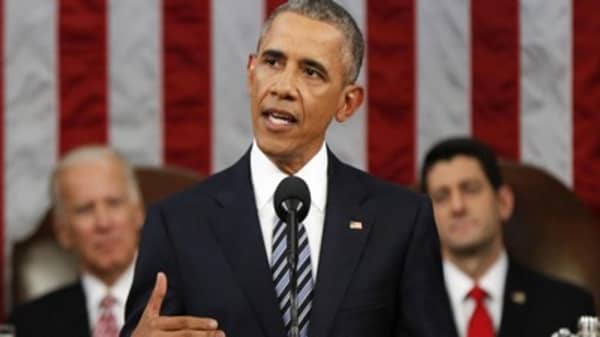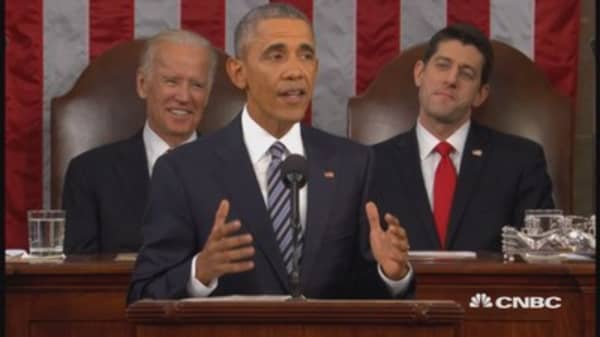President Barack Obama's final State of the Union address was a far cry from his predecessors' oratory.
There's George Washington, for instance. Here's one of the opening lines from his first State of the Union speech in 1790:
"In resuming your consultations for the general good you can not but derive encouragement from the reflection that the measures of the last session have been as satisfactory."
If you have no idea what our first president was trying to tell Congress, you're not alone. By most objective measures, the language in the State of the Union (and indeed in political discourse in general) has been getting less complex over time. They've also been getting less verbose by and large, which Obama actually joked about Tuesday night.
"I'm going to try to make it a little shorter," he said. "I know some of you are antsy to get back to Iowa."
The most popular standard for measuring the complexity of written English is the Flesch-Kincaid test, which uses the number of syllables in words and the number of words in sentences to assign a grade level to how hard it is to understand. By that standard, Obama's speeches are among the simplest yet.









